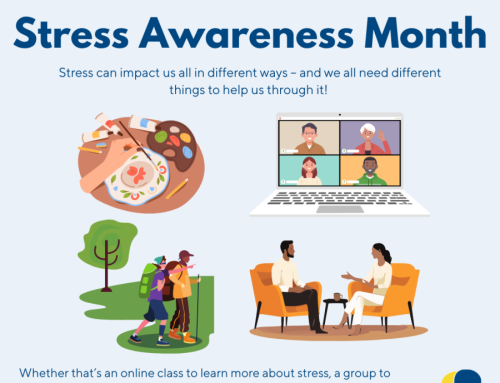John Halsall from the Community Development Service presents the second in a series of data blogs – examining the meaning behind reports and statistics from various sources. You can read his first blog here.
In January 2016 the Health & Social Care Information Centre published two chapters in the Health Survey for England, 2014:
- Chapter 2: Mental health problems
- Chapter 3: Attitudes towards mental illness
This short article highlights some of the findings from this survey of adults living across England.
Mental health problems (Chapter 2)
The survey confirmed that many people experience mental health problems during their lifetime.
- 26% of adults said they had been diagnosed with at least one mental illness during their lifetime.
- A further 18% of adults had experienced mental illness but had never been diagnosed with one.
So in total, more than four out of ten adults have experienced mental health problems. In most cases these were common mental health problems.
Depression, including post-natal depression, was the most commonly reported mental illness diagnosed, with 19% of adults reporting this. The next most common conditions ever diagnosed were panic attacks, mentioned by 8% of adults, and generalised anxiety disorder, which 6% people mentioned.
More women than men said they had ever been diagnosed with a mental illness: 33% women compared with 19% men.
In Yorkshire and the Humber, the picture was similar:
- 24% of adults said they had been diagnosed with at least one mental illness during their lifetime.
- A further 21% of adults had experienced mental illness but had never been diagnosed with one.
If Leeds is typical of Yorkshire and the Humber, then based on the population of Leeds at the 2011 National Census (614,000 adults) I would expect that roughly:
- 150,000 adults have been diagnosed with one or more mental health problems during their lifetime.
- 130,000 adults have experienced mental health problems but have never been diagnosed with one.
Longstanding illness: people who had ever been diagnosed with at least one mental illness were more likely to report having a limiting long standing illness (about two in five people) than those who had never been diagnosed with a mental illness (just under one in five people).
Income: the survey also found that mental illness is more common in people from lower income backgrounds and from deprived areas.
Most people who were receiving counselling or therapy at the time of the survey said that they were finding the counselling or therapy helpful: more than nine out of ten people said this.
More details can be found in the report, including levels of mental illness by age group and household income, experience of treatment in the last 12 months, and well-being scores.
Attitudes towards mental illness (Chapter 3)
This survey explored attitudes among adults aged 16 and over towards mental illness. It looked at two factors:
- Prejudice and exclusion; and
- Tolerance and support for community care.
The survey found that attitudes towards mental illness vary by age and gender, by region, household income, level of deprivation, education and by employment status.
Women consistently had views which were significantly less prejudiced and more tolerant than those of men.
People who knew somebody with a mental illness were significantly more likely to hold views which were more tolerant and less prejudiced.
Knowledge: 46% men and 34% women agreed with the statement “I know very little about mental illness.” People who disagreed with this statement (who knew something about mental illness) had views which were more tolerant and less prejudiced.
Improvement: between 2008 and 2014 attitudes to mental illness improved, according to The National Attitudes to Mental Illness Survey, available on the Time to Change website (www.time-to-change.org.uk).
Ethnicity: unfortunately, both chapters, chapter 2 on mental health problems and chapter 3 on attitudes towards mental illness do not include any breakdowns by ethnicity. We know from previous national surveys that mental health problems affect the lives of people from every community. The national survey of Adult Psychiatric Morbidity of 2007 reported evidence of this.
You might be interested to take a look at the detailed report on the website of the Health and Social Care Information Centre: http://www.hscic.gov.uk/catalogue/PUB19295





